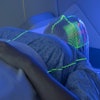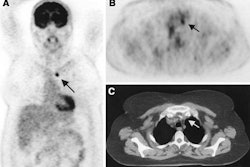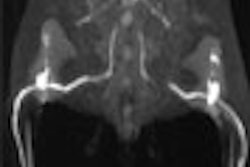CHICAGO - A difficult chemotherapy regimen -- a combination of cisplatin and doxorubicin -- appears to reduce the risk of disease recurrence in women who have undergone a total hysterectomy for advanced endometrial cancer, according to a paper presented at the American Society of Clinical Oncology meeting.
The results of the decade-long Gynecologic Oncology Group Study 122 found that 51.5% of women who received the chemotherapy regimen were free of disease recurrence after 24 months. In comparison, 46.5% of women who underwent whole abdominal radiotherapy were disease-free during the same time period, said Dr. Marcus Randall, chairman of the department of radiation oncology at the University of Indiana in Indianapolis.
From May 1992 to February 2000, 422 patients participated in the trial. Eventually, 396 patients underwent treatment, with 202 receiving whole abdominal radiation and 194 undergoing chemotherapy with combined cisplatin and doxorubicin.
"The risk of a patient having recurrence was reduced by 32% if the woman was receiving chemotherapy," Randall said. But he added that more than half of the women in the trial saw their cancer recur.
In a discussion following Randall’s report, Dr. Gillian Thomas commented that the patients who underwent chemotherapy paid for the decrease in recurrence with an increase in toxicity. Thomas is a professor of radiation oncology and obstetrics and gynecology at the University of Toronto.
"We have learned a lot from the study," Thomas said, although she had numerous questions about the methodology, and whether higher doses of radiotherapy might not have made differences in outcome.
"Doctors and patients will have to decide if the modest benefit in disease-free survival after two years is balanced by the high toxicity and high dropout rate," she said.
In fact, Randall said that 84% of patients completed the radiation course, but only 63% of those on chemotherapy completed the regimen. About 3% of the radiation patients said they discontinued treatment due to adverse events, compared with 17% of the chemotherapy patients.
Randall said that another study investigating a combination of radiation and chemotherapy is currently underway.
By Edward SusmanAuntMinnie.com contributing writer
June 4, 2003
Related Reading
Endometrial cancer can develop after radiation for cervical carcinoma, May 13, 2003
Unexpected FDG-PET foci may signal subclinical tumors, December 26, 2002
Color Doppler sonography pinpoints endometrial cancer, September 18, 2002
Survival unaffected by treatment delay for low-risk endometrial cancer, July 9, 2002
Copyright © 2003 AuntMinnie.com



















